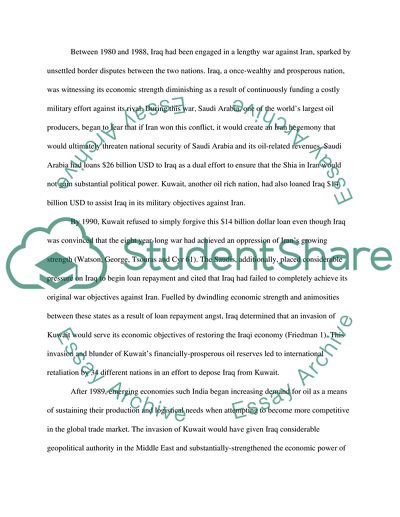Cite this document
(“To what extent can global geopolitics in the period since 1989 be Essay”, n.d.)
To what extent can global geopolitics in the period since 1989 be Essay. Retrieved from https://studentshare.org/social-science/1677242-to-what-extent-can-global-geopolitics-in-the-period-since-1989-be-described-as-a-clash-of-civilisations
To what extent can global geopolitics in the period since 1989 be Essay. Retrieved from https://studentshare.org/social-science/1677242-to-what-extent-can-global-geopolitics-in-the-period-since-1989-be-described-as-a-clash-of-civilisations
(To What Extent Can Global Geopolitics in the Period since 1989 Be Essay)
To What Extent Can Global Geopolitics in the Period since 1989 Be Essay. https://studentshare.org/social-science/1677242-to-what-extent-can-global-geopolitics-in-the-period-since-1989-be-described-as-a-clash-of-civilisations.
To What Extent Can Global Geopolitics in the Period since 1989 Be Essay. https://studentshare.org/social-science/1677242-to-what-extent-can-global-geopolitics-in-the-period-since-1989-be-described-as-a-clash-of-civilisations.
“To What Extent Can Global Geopolitics in the Period since 1989 Be Essay”, n.d. https://studentshare.org/social-science/1677242-to-what-extent-can-global-geopolitics-in-the-period-since-1989-be-described-as-a-clash-of-civilisations.


